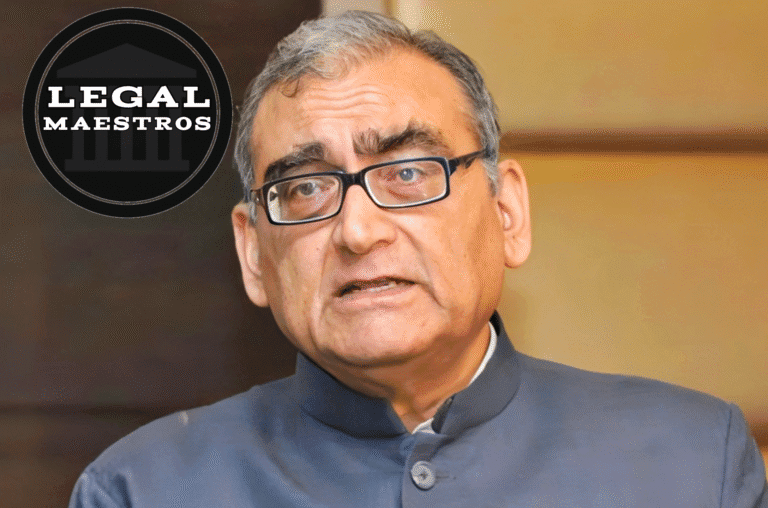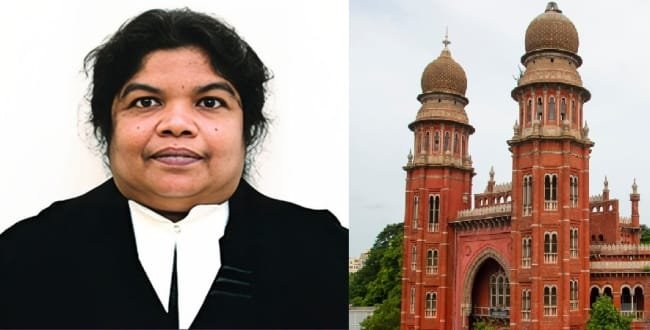
Unveiling of a Kind Verdict
The case in Point W.A (MD) No.1603 of 2025, which was presented before the Madurai Bench of the Madras High Court touches upon a very important matter of family pensions for mentally incapacitated persons. The case was an appeal against an order of a Single Judge of this court in W.P(MD) No.2972 of 2025 by the Principal Accountant General (A&E), Chennai. The matter of the dispute lay in the right of a mentally retarded son A.V. Jerald, to be entitled to family pension after the death of his parents.
Jerald A. Varuvel, the father of 40-year-old 40-year-old Jerald was a forester and he joined the receiving pension as a medically unfit person in 1982. With his demise in 1998, his wife Maria Rose was the beneficiary of the family pension. Unfortunately, Maria Rose died in 2016. The couple bore two sons, and one of them was found to be mentally retarded, A.V. Jerald. Jerald was then brought up by his older brother, A.V. Tharsius, after the death of his parents. His intellectually disabled younger brother also adopted by Tharsius, later attempted to get his younger brother a family pension and made representations to the department, time and again, to no avail. This made him go to the High Court and placed a writ petition in the final week of the month of January 2025, which was finally permitted by Mr. Justice Battu Devanand on 10th of February 2025.
In the process of the appeal being admitted, the court was made aware that the direction of the learned single judge had already been abided by. The appellant, however, wanted the strong words voiced by the learned Single Judge to be expunged and it was done by the heeding of the division bench, composed of Mr. Justice G.R. Swaminathan and Mr. Justice K. Rajasekar, in light of the actions adopted by the appellant after the order was passed.
For any queries or to publish an article or post or advertisement on our platform, do call at +91 6377460764 or email us at contact@legalmaestros.com.
The Cry of T.A. Sujatha: An Eye Opener to Bureaucracy-Based Delays
Another interesting twist is that the court then proceeded to outline another heart-touching case – that of T.A. Sujatha. Sujatha is the daughter of Shri.T.S. Arunachalam, a former Acting Chief Justice of the Madras High Court. Her father retired in 1996 and in his pension book there was clear mention of the handicap of Sujatha. He died in 2020 and her mother a year later on June 29, 2024 A family pension application for Sujatha was duly filed and all the necessary papers were provided including the legal guardianship of Sujatha obtained by Member of Parliament Dr. T.A. Lalitha (her younger sister, on her behalf, under Section 14 of the National Trust Act, 1999). This notwithstanding, on January 10, 2025 and after preparation of the admissibility report, the office of the Accountant General, sent the admissibility report to the Ministry of Law and Justice (Department of Justice), New Delhi, seeking sanction from the President of India. Thereafter, Dr. Lalitha was sent another letter from the AG office consisting of a February 7, 2025 letter from the Government of India, asking her for the same package of documents again. The issue was stuck.
The court was saddened by the fact that the physically and mentally challenged daughter of a former Acting Chief Justice was not being given a family pension even after over a year since her mother passed away and made it very clear that she is irredeemably dependent. The bench implored the Registrar General of High Court Madras to come forward and see to it that Ms. T. A. Sujatha is given her family pension on an urgent basis.
Breaking the Language of the Law: Pension Regulations and the Spirit of the Law
The legal statement in this case relies on clear stipulations in the pension regulations for disabled dependents. The court has meticulously referred to Rule 54(6) of the CCS (Pension) Rules as per which, in the case of sons or any daughter of a government servant whose day to day earning is not possible on account of his / her mental disorder or disability, including mental retardation, family pension is payable throughout the life of such son / daughter with effect from the date on the basis of which disability pension is admissible. The rule goes on to insist that the appointing authority should be satisfied as to the nature of the handicap that bars it from livelihood, to be certified by a Medical Board. The court also inferred that against such similar provisions present in the Tamil Nadu Pension Rules, 1978, in particular Rule 49(6), which also provides lifetime family pension to a son or daughter with that mental disorder or disability that helps him or her to earn a livelihood after the parents are dead. This is also a rule that needs a certificate signed by a medical officer not lower in rank than a civil surgeon.
For any queries or to publish an article or post or advertisement on our platform, do call at +91 6377460764 or email us at contact@legalmaestros.com.
Importantly, the court pointed out that both these statutory provisions have no requirement for issuance of an income certificate indicating income earned on all fronts. This was a big issue because the appellant had demanded such a certificate in the case of Jerald. The court was emphatic that when the statutory rule requires a medical certificate given by a Doctor/Medical Board in proving that a son or daughter cannot earn a livelihood because of his or her mental or physical disability, then the authority cannot ask for anything additional.
Judicial Precedent and The Right to Pension
The court further supported its stand by making reference to the judgement of the Supreme Court as authoritative.
Bhagwanti Mamtani v. UOI, 1995 Supp.(1) SCC 145. This was a three decades old precedent that had made the issue clear that relief could be granted to an intellectually disabled daughter on the basis of a report of the Department of Psychiatry, AIIMS and by establishing the right of her to a family pension under Rule 54(6) of the CCS (Pension) Rules, 1972 w.e.f. 1 May 1986. It has been pointed out by the Madras High Court that the case has been adhered to diligently.
For any queries or to publish an article or post or advertisement on our platform, do call at +91 6377460764 or email us at contact@legalmaestros.com.
In the judgment, the basic underlying aspect was that a pension is a right and not a charity or bounty. The authorities are supposed to move swiftly when it comes to extending this benefit to the mentally disabled. It is necessary to take such an early and sensitive manner in order to realize the kind of neutral intent of the statutory provisions. In a fanciful manner, the court stated that these provisions are a continuation of Article 21 of the Constitution of India which entitles the right to life and liberty of an individual. The court made it clear that a mentally disabled son or daughter of a pensioner who comes under the purview of the pension rules should be disbursed with a family pension after producing a medical certificate attesting to the fact that the son or daughter was incapable of earning his/her own livelihood without any insistence on an income certificate. More so, the order of sanction has to go off the shelf without delay as soon as the documents required as mentioned in the statutory rules are handed in.
Raising the right of the Week
The case of W.A(MD)No.1603 of 2025 is an excellent reminder of how the judiciary can be used in defense of the rights of vulnerable segments of the population. The High court highlighted the spirit of pension rules and the constitutional imperative of Article 21 has come out strongly against administrative authorities. It is unpardonable when integrating the rights of mentally disabled persons that bureaucratic inefficiencies and any needless set of conditions (like income certificates) are placed to hinder the row toward the achievement of the said rights. The warm but decisive attitude of the court guarantees the rightful transformation of the human spirit of social welfare legislations into the concrete advantage of the destitute, preserving the dignity and the dignity of the very needy members of society. This has strengthened the idea that pension is a right which even the dependent with special needs has earned and therefore its release should not be a time-consuming affair of red tape but an issue of action.








1 thought on “Madras High Court: Pension Not Charity for Dependents of Mentally Disabled Govt Servants”